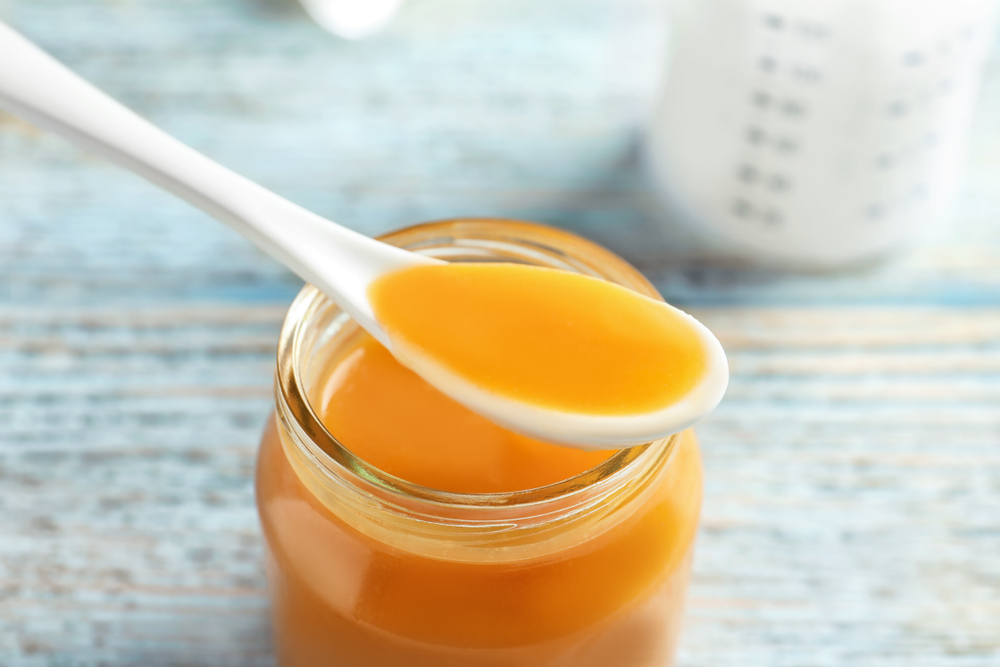Scientists, child health advocates and government officials have been pushing forward on necessary changes to the baby food industry in order to keep children safe from heavy metals. However, while the changes are being addressed, parents and caregivers must ensure their children are eating not only healthy food but safe food.
In 2021, Congress released the results of a two-year investigation of the baby food industry and found commercial baby foods, including the most trusted brands like Gerber and Beech-Nut, contain dangerously high amounts of heavy metals. Tainted products ranged from baby cereals to vegetable purees and juices.
Heavy metals, including arsenic, lead, cadmium and mercury, are elements found in nature, but they can be dangerous when ingested, especially for babies and toddlers. Heavy metals are released into our environment through pesticides and pollution and can seep into the water and the soil we use for crops. They also can be released into foods that are not stored safely. Because young children's brains are rapidly developing, heavy metals entering their system can wreak havoc on their neurological development and affect long-term brain function. Exposure has been linked to autism, attention deficit disorder as well as other learning and behavioral issues.
Along with handing out a scathing criticism to the baby food manufacturers, Congress also pointed the finger at the U.S. Food and Drug Administration (FDA). The lawmakers called on the agency to create new standards, urging it to move swiftly. "To this day, baby foods containing toxic heavy metals bear no label or warning to parents. Manufacturers are free to test only ingredients, or, for the vast majority of baby foods, to conduct no testing at all," the report said. Contaminated baby food lawsuits are also being filed against manufacturers for selling products containing harmful metals.
How Can You Protect Your Baby from Dangerous Metals?
The FDA is currently creating new regulations and procedures. While changes are being made, it is more important than ever that parents and caregivers serve as their baby’s strongest protectors, armed with accurate information.
Remember, these elements occur naturally, so attempting to rule them out of existence entirely won’t happen. However, there are foods recognized as absorbing higher levels of heavy metals, including rice and root vegetables, like sweet potatoes and squash, and apples and grapes.
Let’s talk more about rice: Rice tends to absorb more arsenic, lead and cadmium from groundwater than other crops, and while baby rice cereal has been a staple for parents introducing babies to "first" foods, parents need to be smart. Use different types of baby cereals instead, like oat, barley or a multi-grain cereal.
Of the different kinds of rice, brown rice is known to absorb heavy metals easier than others. As the child grows and you want to incorporate more rice into their diet, basmati or sushi rice are safer options, and when you cook rice, it is best to cook it in extra water and drain that water off.
Read, read, read: As you grocery shop, take time to read the food labels while keeping in mind some dangerous ingredients may not be included at the top of the ingredients list (for example, rice syrup or rice flour).
The homemade touch: Although there is no guarantee homegrown vegetables or organic produce will not contain toxins, fresher alternatives to store-bought baby foods are considered good choices. Although we know carrots, sweet potatoes and squash are known to absorb heavy metals, at the same time, they can provide a good source of nutrients and fiber to children. Instead of eliminating them, consider growing your vegetables yourself or buying from a reliable produce stand and whip up a puree with a food processor in your kitchen.
Location, location, location: If possible, know where your food is grown. Purchase fruits and vegetables from growers who are in areas less polluted.
Do what the doctors recommend: Because of the sugar content, the American Academy of Pediatricians does not encourage children to drink fruit juice until after their first year. Another reason to save the introduction is that many fruits absorb heavy metals easier than other crops.
Here are some more tips from the American Academy of Pediatrics on how to keep heavy metals away from your family:
- Check your water. Heavy metals can get into tap water: arsenic can contaminate well water, and older pipes may contain lead. You can contact your local health department to have your water tested if this is a concern.
- Breastfeed if possible. Breastfeeding, rather than formula feeding, also can help reduce exposure to toxic metals. The American Academy of Pediatrics recommends breastfeeding as the sole source of nutrition for your baby for about six months.
- Make healthy fish choices. Some types of fish can be high in the form of mercury called methylmercury and other metals. Of most concern are large, predatory fish that eat other fish and live longer, such as shark, orange roughy, swordfish, and albacore/white tuna. Eating contaminated fish can harm a child's developing nervous system. But fish is also an excellent source of protein and other nutrients children need, and many are low in mercury. Look for better options like light tuna (solid or chunk), salmon, cod, whitefish, and pollock.
- Address lead hazards in your home. There are other important ways to help reduce your baby's exposure to toxic metals. The most common source of lead exposure, for example, is from peeling or chipping paint from older homes. Soil, some cosmetics and spices, water, and certain occupations and hobbies can also be sources of exposure.
- Don't smoke or vape. Secondhand and thirdhand smoke from both regular and e-cigarettes may expose children to metals such as cadmium and lead. Vaping allows toxic metals from the vape coils to get into the air and be inhaled. Secondhand smoke also contains harmful chemicals that can increase the risk of cancer.










